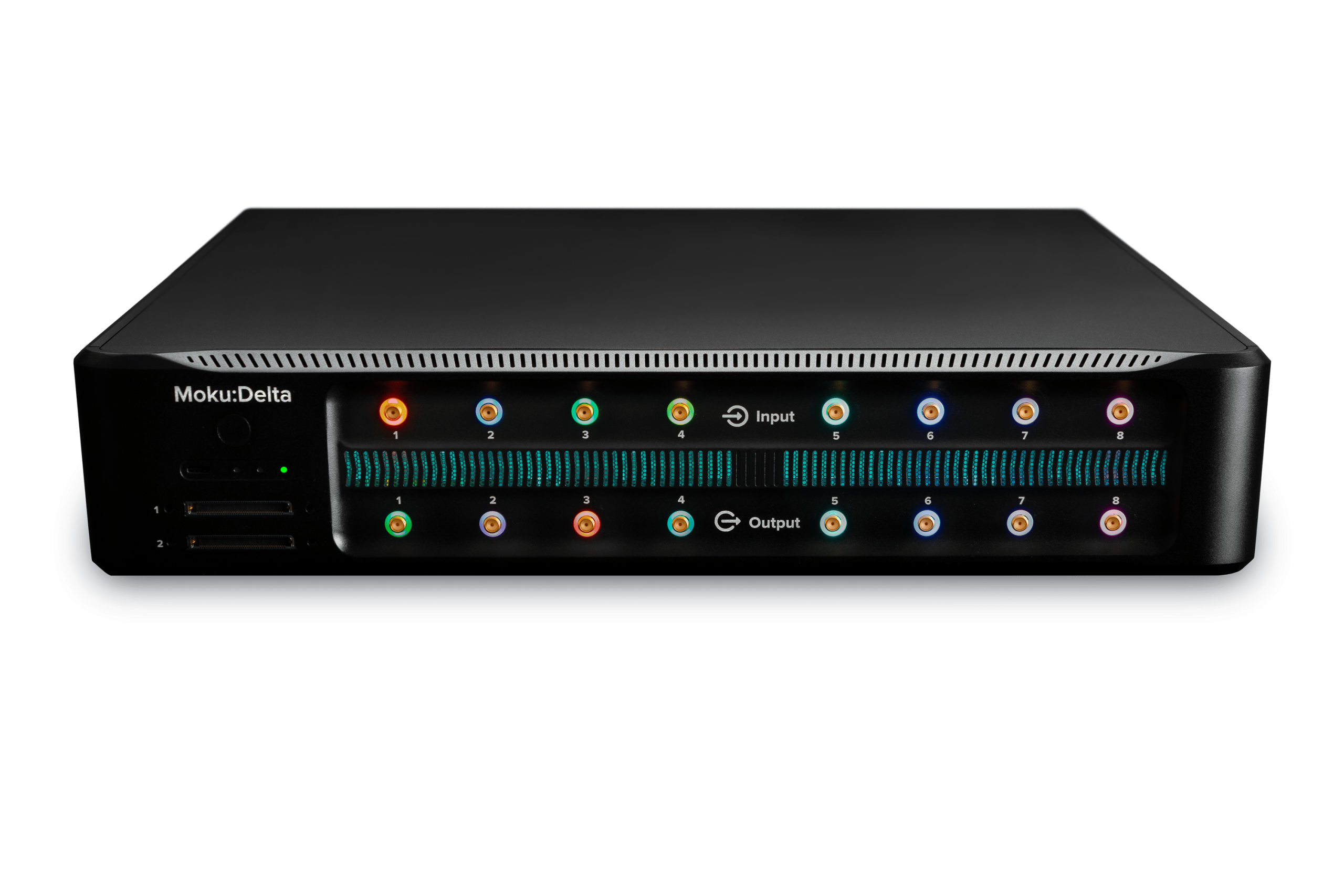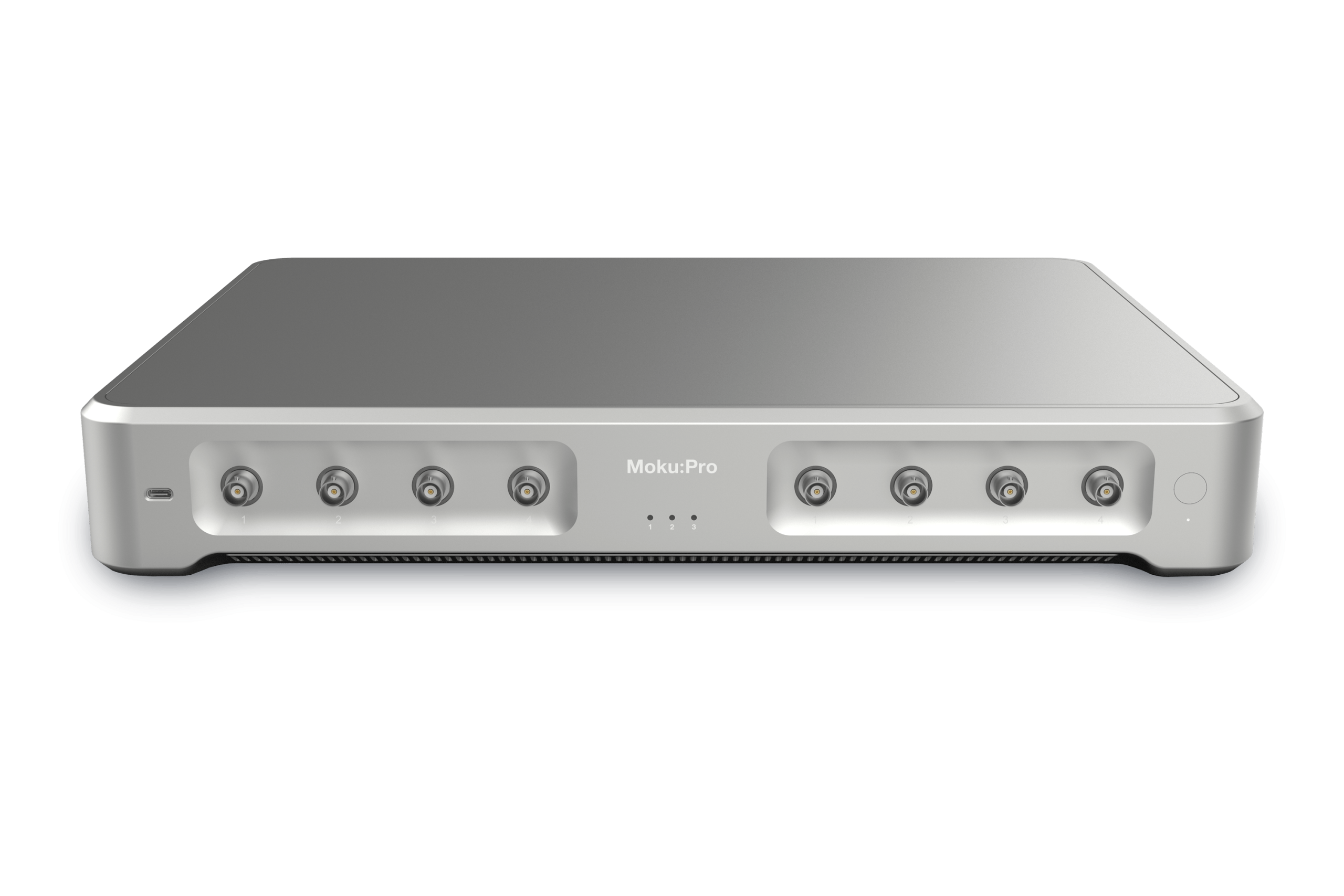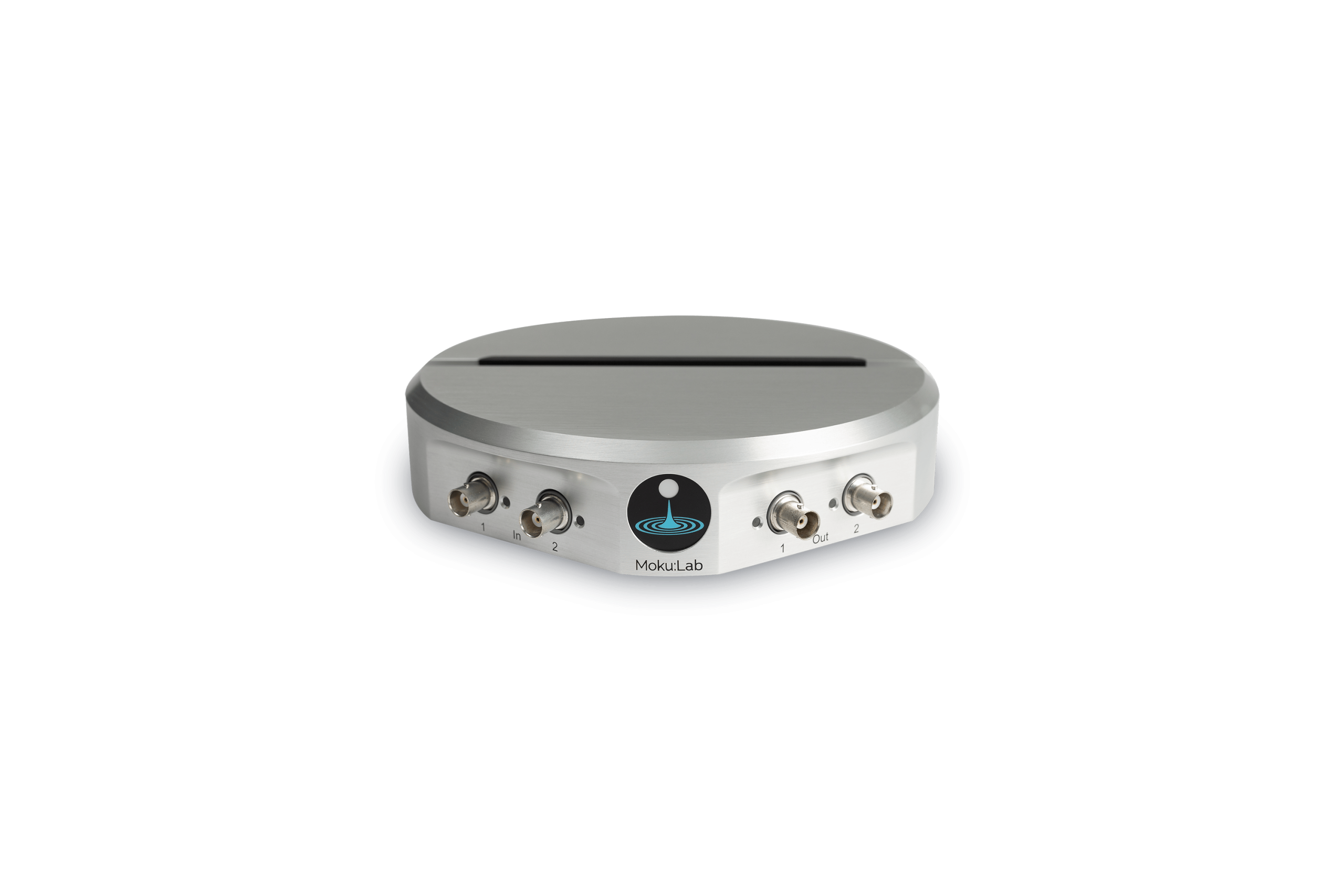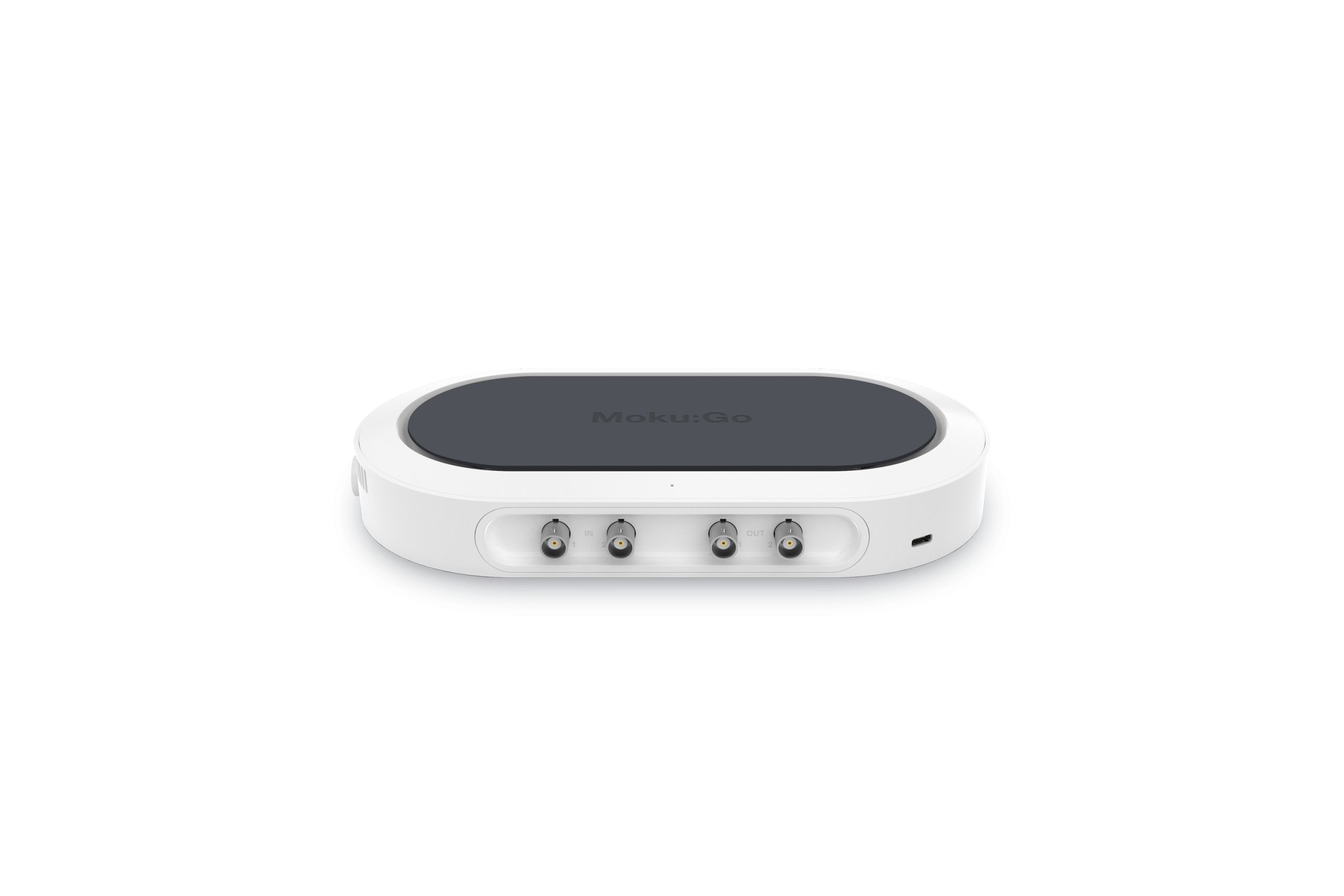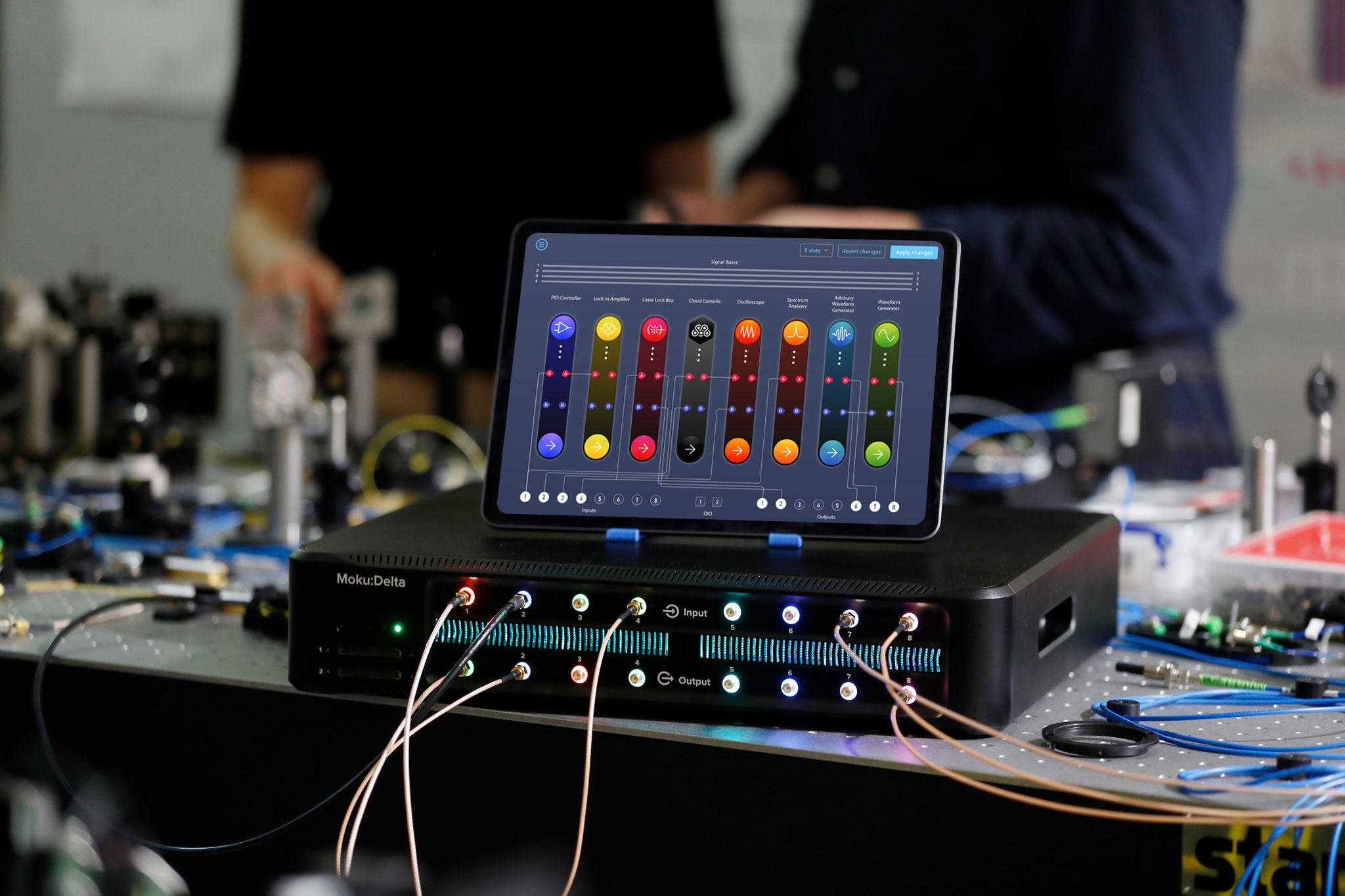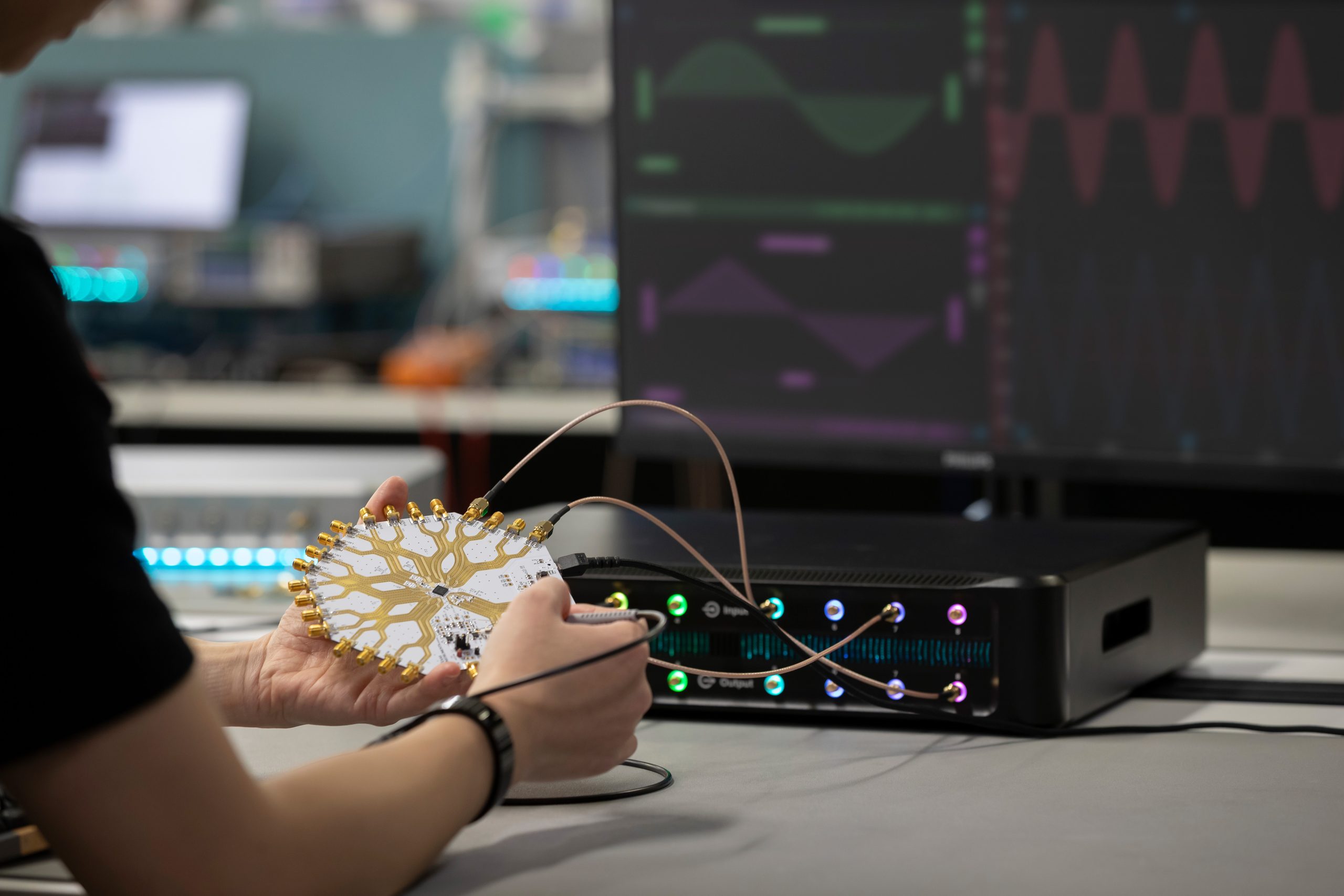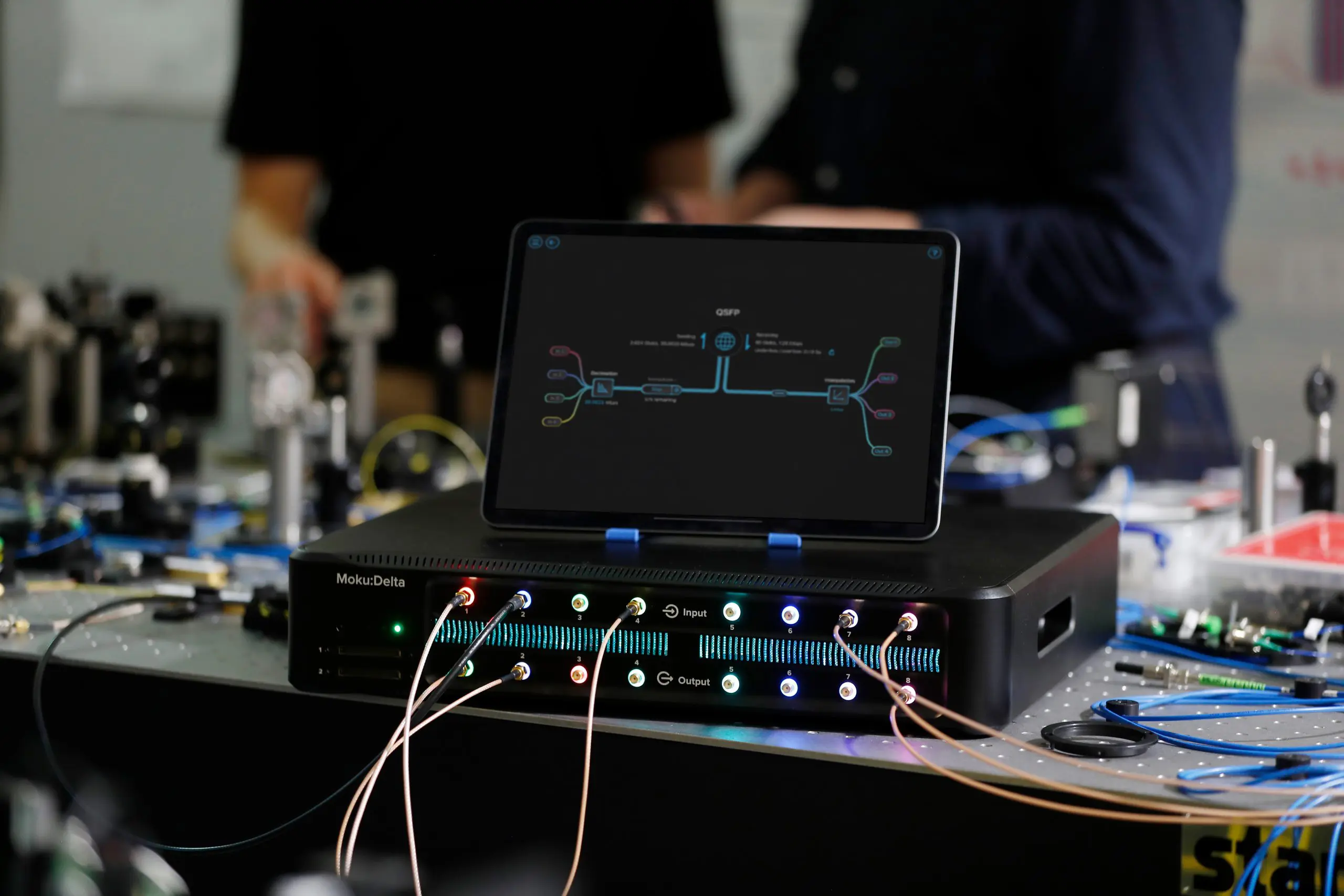Webinar details
Date: July 24, 2024
Speaker: Jason Ball
Overview
Automating control of experiments is critical for efficient data taking and repeatable results. To this end, Python has become the programming language of choice for an expansive list of research fields, including bioinformatics, machine learning, and experimental physics, owing to its ease of use and abundant supporting resources.
During this presentation, we explain how to use Python to implement an experimental control stack with Moku, a family of reconfigurable, FPGA-based instruments, to maximize efficiency and speed.
Join us to:
- Learn how to leverage Python for streamlined control and data viewing, easily integrating Moku devices into your sequence alongside other necessary components.
- See how to use the Moku Python API, from basic installation to connecting and configuring instruments.
- Learn how to implement scripts for common functions such as waveform generation, data logging, and phase measurements- all in a live demo.
- Learn new ways to accelerate your own experiments, maximizing the flexibility and versatility of Moku and Python together.
The webinar includes a presentation, demonstration, and live Q&A session.
